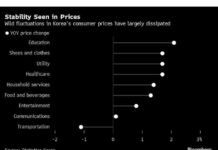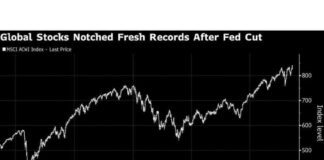Investigative Report: Insider-Owned Growth Stocks and Their Implications for Investors
Introduction:
In the midst of a robust global market performance and positive economic indicators, growth stocks with high insider ownership have emerged as potential winners for investors. These companies, where insiders hold substantial stakes, often signal confidence in the business and align their interests closely with other shareholders. While the original article highlighted the top 10 growth companies with high insider ownership, this investigative report delves deeper into the implications and nuances of investing in such stocks.
Background:
Insider ownership in a company refers to the percentage of shares held by executives, directors, and other key individuals within the organization. High insider ownership is generally seen as a positive sign, indicating that those who know the business best are confident in its future growth prospects. This confidence can be a strong signal for investors looking for potential opportunities in the market.
Analysis:
One of the companies mentioned in the original article is DNO ASA, a company involved in the exploration, development, and production of oil and gas assets. Despite its forecasted significant earnings growth of 45.2% per annum, there are concerns about profit margins decreasing and dividend coverage. This raises questions about the sustainability of the company’s growth trajectory and the impact on investor returns.
Another company highlighted is The Siam Cement Public Company Limited, operating in the cement and building materials sector. While the company is expected to experience substantial earnings growth of 47.7% annually, there are challenges with declining profit margins and debt coverage. These factors could potentially affect the company’s ability to deliver on its growth projections and impact shareholder value.
Additionally, Sri Trang Agro-Industry Public Company Limited, a manufacturer and distributor of natural rubber products, is forecasted to achieve impressive earnings growth of 84.4% per annum. However, concerns about high debt coverage and a dividend yield not well supported by earnings raise questions about the company’s financial health and long-term sustainability.
Implications:
For investors considering these insider-owned growth stocks, it is crucial to conduct thorough due diligence and consider the broader implications of investing in these companies. While insider ownership can be a positive signal, it is not a guarantee of future success. Factors such as profit margins, debt coverage, and dividend sustainability must be carefully evaluated to assess the true potential of these investments.
Conclusion:
In conclusion, the allure of insider-owned growth stocks may be enticing for investors seeking high returns. However, it is essential to look beyond insider ownership percentages and delve into the underlying financial health and growth prospects of these companies. By conducting a comprehensive analysis and considering all relevant factors, investors can make informed decisions that align with their investment goals and risk tolerance.






















